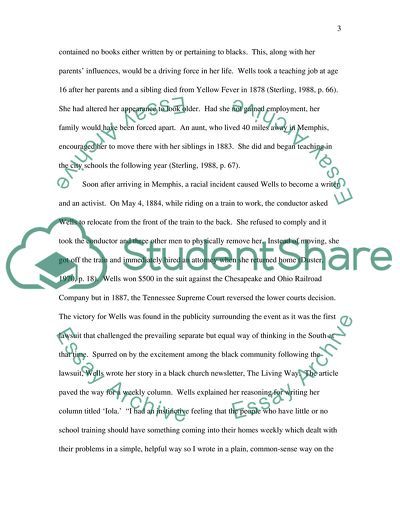Cite this document
(Ida Wells and Her Impact on Civil Rights Assignment, n.d.)
Ida Wells and Her Impact on Civil Rights Assignment. https://studentshare.org/history/1704931-ida-b-wells-her-impact-on-civil-rights-especially-her-activities-with-the-anti-lynching-campaign
Ida Wells and Her Impact on Civil Rights Assignment. https://studentshare.org/history/1704931-ida-b-wells-her-impact-on-civil-rights-especially-her-activities-with-the-anti-lynching-campaign
(Ida Wells and Her Impact on Civil Rights Assignment)
Ida Wells and Her Impact on Civil Rights Assignment. https://studentshare.org/history/1704931-ida-b-wells-her-impact-on-civil-rights-especially-her-activities-with-the-anti-lynching-campaign.
Ida Wells and Her Impact on Civil Rights Assignment. https://studentshare.org/history/1704931-ida-b-wells-her-impact-on-civil-rights-especially-her-activities-with-the-anti-lynching-campaign.
“Ida Wells and Her Impact on Civil Rights Assignment”. https://studentshare.org/history/1704931-ida-b-wells-her-impact-on-civil-rights-especially-her-activities-with-the-anti-lynching-campaign.


